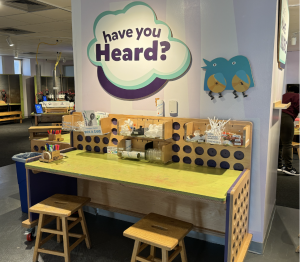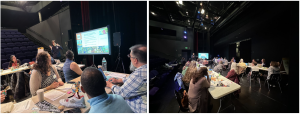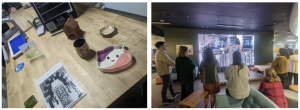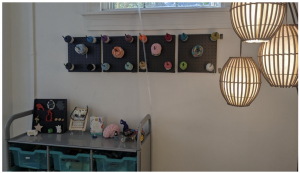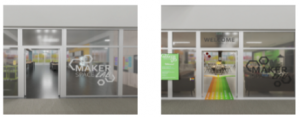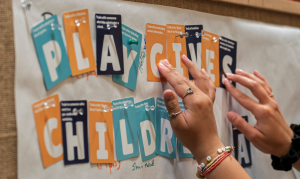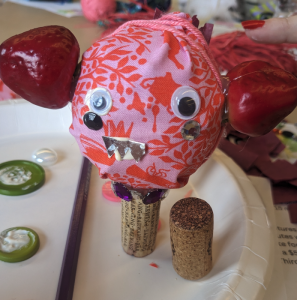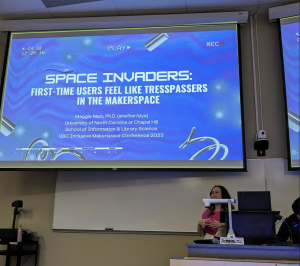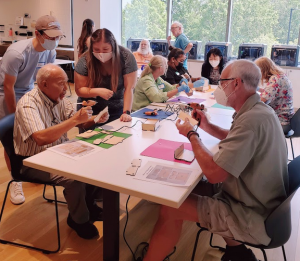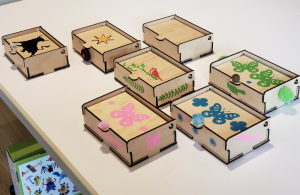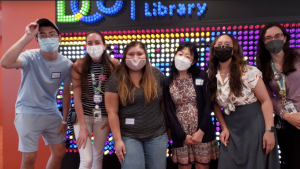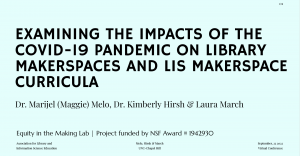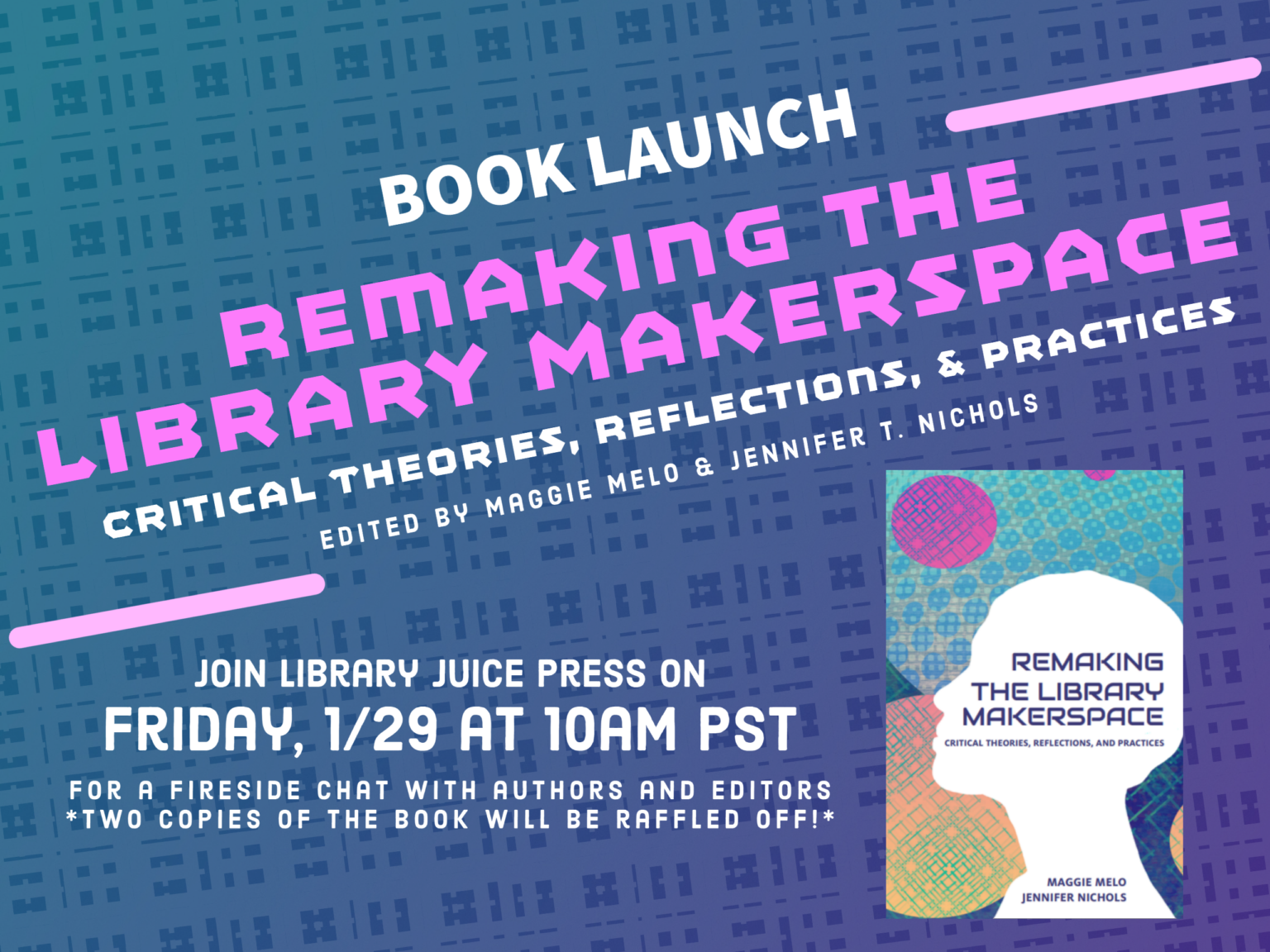Summer Insights: Connections through Collaborative Making
This summer has been a series of exciting events and collaborations that highlight EiTM’s commitment to fostering inclusive and engaging makerspaces. From thought-provoking lectures to hands-on workshops, the lab’s activities have not only showcased our research but also actively involved community members in the dialogue about spatial equity and inclusion.
ASERL Lecture & Making
Dr. Melo presented “Building Inclusive Communities: The Role of Spatial Equity in Makerspace Design and User Engagement” at ASERL (Association of Southeastern Research Libraries). Following the lecture, attendees took part in a making activity at the Kenan Science and Engineering Library makerspace. Included in this making workshop was creating bookmarks with Cricut, friendship bracelets, and a collaborative tufting piece.
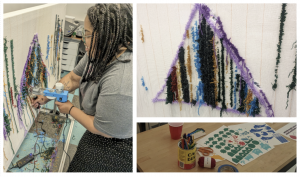
Tufting Workshop
The tufting project, in particular, allowed attendees to contribute personally by adding their own color choices to a communal artwork, symbolizing the collective nature of the conference.
EiTM Featured in CRAFT Newsletter
The EiTM Lab was featured in the July 2024 CRAFT Newsletter (Critical Relationality Alliance for Transformation). Highlighted in this feature was Dr. Melo’s NSF funded research “Why do students turn away at the threshold of a makerspace?”
CRAFT’s mission to bridge equity, making, and education aligns closely with EiTM’s goals, and this recognition reflects our ongoing efforts to address and understand the barriers to participation in makerspaces.
Photovoice Workshop at BeAM
Prior to the start of the Fall 2024 semester, EiTM participated in staff training at BeAM (Be a Maker) Makerspace. EiTM lead a photovoice workshop with 24 new student staff members to heighten their understanding of what inclusive or exclusive narratives the BeAM makerspace presents. The workshop was composed of two story-making sessions where staff members explored the makerspace and took pictures to tell a story of inclusion, and a story of exclusion. The session concluded with a gallery walk and a discussion that connected these narratives to Dr. Melo’s research on spatial design.
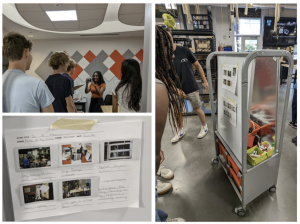
Photovoice Workshop with BeAM Staff
Conducting this photovoice workshop offered the opportunity for EiTM to share findings interactively with makerspace staff members and informed the next stage of Dr. Melo’s study exploring how inclusion can be communicated in makerspaces.
Next Steps
As we reflect on these summer highlights, it’s exciting to see that the EiTM Lab’s efforts are making meaningful strides towards more inclusive and engaging environments in makerspaces. We look forward to implementing the next phase in the study “Investigating Spatial Arrangements of Makerspaces and Their Impact on Diverse User Populations.”

